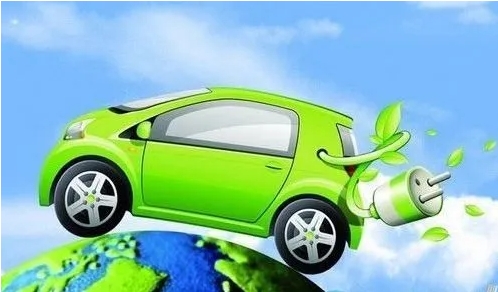The Kigali city authorities in partnership with BasiGo, a Kenyan based company launched the pilot electric buses in public transport earlier this month, following a similar trial on minibuses which are also plying Kigali streets.
When fully charged the bus can travel 300 kilometers without need to be recharged, with charging points installed at specific spot in Kigali's Kicukiro district.
The goal is to introduce 200 buses on the streets of Kigali, within 18 months each with capacity to carry 70 passengers, according to officials.
A number of ordinary Rwandans and experts said the introduction of the electric buses boosts Rwanda's efforts to advance smart mobility systems in a bid to ensure sustainability measures into the economy.
"Sincerely I'm excited about the introduction of electric buses. In terms of environment protection, it was long overdue. I hope that a rollout of electric cars will reduce pollution," a passenger who gave his name only as Hirwa told Xinhua, adding that the bus is comfortable and reduces the travel time by around half.
In July, the Rwandan government and Vivo Energy company signed a deal to introduce more than 200 electric buses to the country to promote the use of electric locomotives.
Innocent Umuhoza, a driver with 18 years of experience who drives a shining green-electric bus from Kigali town center to Remera Park along the airport road, says "old, combustion-engine buses can be a menace as they produce a lot of dangerous fumes which affect our environment.
"Thus far, the majority of the buses on Rwandan roads are gasoline-powered.
The last time Umuhoza filled a gasoline-powered bus with 100 liters of diesel, it cost him between 160,000 Rwandan francs (about 127 U.S. dollars) to 170,000 francs.
The electric bus now he drives, by comparison, consumes electricity worth 40,000 Rwandan francs (about 31 U.S. dollars) from Kigali town center to Remera Taxi Park, saving about 120,000 Rwandan francs of the money previously spent on fuel, according to Umuhoza.
He asserts that transporters using gasoline-powered vehicles make losses during non-peak days when travellers are few.
"Fuel is sometimes prohibitively expensive. For example driving from the town center to Remera Taxi Park if I carry say 40 passengers in a bus with capacity to take 76 passengers their transport fare cannot cover the fuel consumed," he said, adding that "Compared, for an electric bus with capacity to carry 70 passengers, even when I take 40 there is no loss on the part of my employer because electricity consumption is very low.
"The operational cost of an electric vehicle is said to be 40 percent less than that of petrol vehicles.
Umuhoza argued that since electricity is locally produced, part of the money previously used to import fuel by the government will be saved and invested in the economy.
Jean d'Amour Nsengimana, a passenger on board a bus from town center to Kigali suburb of Remera, said there is a need for more electric vehicles on Rwandan roads to avoid pollution.
Rashid Rutayisire, another driver, said after years of driving gasoline-powered vehicles he doesn't even want to smell gasoline any more. He added that the electric buses are well built in the interior, installed with mobile phone charging system and internet. They also have comfortable seats for both the driver and passengers.
Abias Maniragaba, a Rwandan environmentalist, said the introduction of electric vehicles is "a right step towards the global goal of reducing greenhouse gas emissions by adopting green technology, green transport in the country, and in terms of nature conservation."
"This initiative will help the movement to be greener, where people can move with zero emissions. When we reduce the greenhouse gas we are sending to the atmosphere, that's our contribution to the international commitment," he told Xinhua.
Maniragaba suggested the government should find a way of subsiding transport fare for people using electric buses to encourage more people to abandon use of individual fuel vehicles.
He also called for more awareness about the benefits of electric vehicles to increase their adoption.
"We need to think globally, and act locally. Thinking globally is reducing greenhouse emissions. Although Rwanda's emission is quite low compared to developed countries it has a direct impact on our community.
"Rwanda this fiscal year abolished import taxes on electric vehicles, as well as vehicles that utilize both electricity and petroleum products (hybrids), including electric motorcycles, to encourage their adoption and contribute to a greener, cleaner future.
